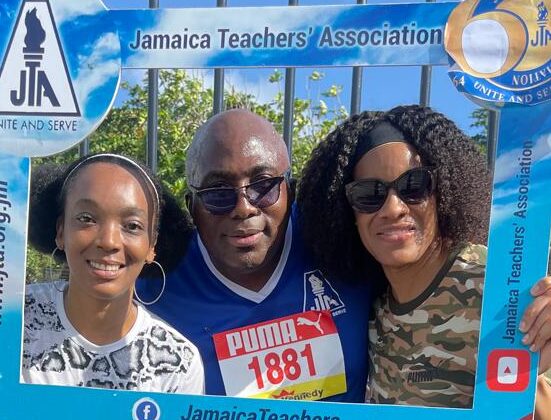The National Road Safety Council (NRSC) says it wants Government to tax bikes as a part of measures to reduce motorcycle road deaths. At the same time the Council wants to remove import taxes against helmets to make them more affordable and hence more likely to be used by cyclists.
The members of the NRSC say they met with their chairman, Prime Minister Andrew Holness on August 10, 2017, to discuss matters pertaining to reducing the level of crashes on Jamaica’s roads.
According to a statement from the Council, “traditionally pedestrians account for the highest number of fatalities but since 2015 they have been overtaken by motorcyclists.”
Up to last week, 67 motorcyclists have died compared with 59 in 2016 and 72 for 2015 in the same period.
The statement from the NRSC said the highest number of motorcycle fatalities was 111, in 2015. That year deaths due to motorcycles it surpassed pedestrian fatalities for the first time as the leading category of deaths on Jamaica’s roads.
The Council said deaths among this group is the main cause of “the erosion of gains made in reducing fatalities” to below 300.
The last time there were fewer than 300 road deaths for a year in Jamaica was in 2012, when 260 fatalities were recorded.
“For the level of deaths on our roads to be significantly reduced to get back in line with the Below 300 programme, this group requires major focus and attention,” the NRSC said.
“Most of these motorcycle drivers are from the western section of the island. In this area motorcycles are increasingly being used as a preferred form of transportation and motorcycle taxis predominate as a sought after form of transportation in communities. It is believed that this unprecedented upsurge in motorcycle ownership is being fuelled by the ever increasing levels of disposable income of certain persons in the areas affected in the west, as well as the affordability of the small motorcycles,” the statement further said.
“When policemen try to educate motorcyclists and prosecute those who do not use helmets and otherwise contravene the law, community members do not cooperate with the police who are trying to protect them as well as uphold the law. This makes it very difficult to apprehend them when they break the law.
Additionally, when the police confiscate the motorcycles, the owners do not return for them, they simply purchase another motorcycle which they often do not license. This has caused storage capacity problems for the police. Neither are the majority of the motorcyclists’ holders of a licence to drive their motorcycle. Some of them have a Learner’s Permit indefinitely as the Law is not specific enough to require them to upgrade to being certified to drive a motorcycle. The new Road Traffic Act plugs that loophole.
As most motorcyclists do not wear a helmet, over 90% of those who die or who are injured were ‘un-helmeted’ at the time of the crash.
The main intervention to stem the increase in motorcycle fatalities has been public education and sociocultural intervention which means putting “boots on the ground” to engage the various communities in an interactive manner….. Unfortunately, the high illiteracy level has hampered the licensing of several motorcyclists as they are unable to take the required Road Code test. Despite this, the fatality level was reduced by 14% in 2016 when compared to 2015.
The NRSC also solicits donations of helmets from various companies to distribute among the motorcyclists.
In addition to those measures the following proposals were discussed:
1. Apply a tax to the importation of motorcycles in an effort to decrease the numbers of motorcyclists on our roads. The tax collected would accrue to the National Health Fund for allocation to projects which promote health and wellness.
2. Reduce or eliminate the import tax on helmets in order to encourage the use of helmets.
3. Ensure that motorcycles cannot be sold without its safety device, the helmet.
4. Ensure that motorcyclists have their licenses plate number prominently displayed on their helmets and vest.
5. Enlist the services of the Jamaica Bureau of Standards to conduct a Regulatory Impact Assessment for the development of mandatory standards and technical regulations.








